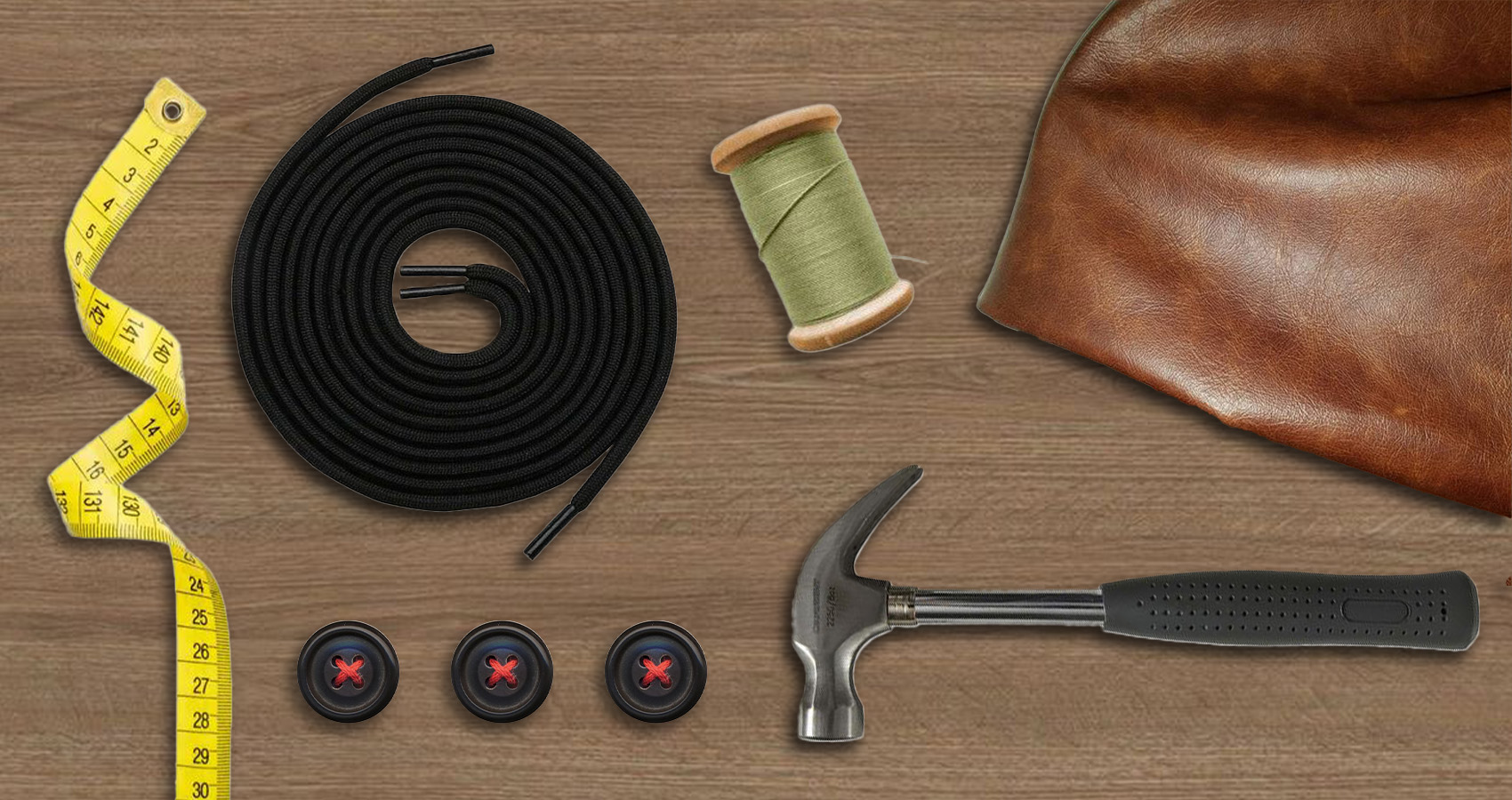
Sustainable Sole Searching: The Eco-Friendly Choice of Handmade Shoes
Learn how handmade shoes support sustainability, ethical sourcing, and artisanal craftsmanship.
You've probably noticed more people talking about sustainable fashion lately, and handmade shoes are becoming a key part of this conversation. They're not just about looking good; they also offer a way to make a positive environmental impact. By choosing handmade shoes, you're supporting ethical sourcing, reducing your carbon footprint, and promoting artisanal craftsmanship. But what exactly makes these shoes so special, and why should you consider making the switch? There's a lot more to uncover about how these shoes are made and the real benefits they offer.
The Rise of Handmade Shoes
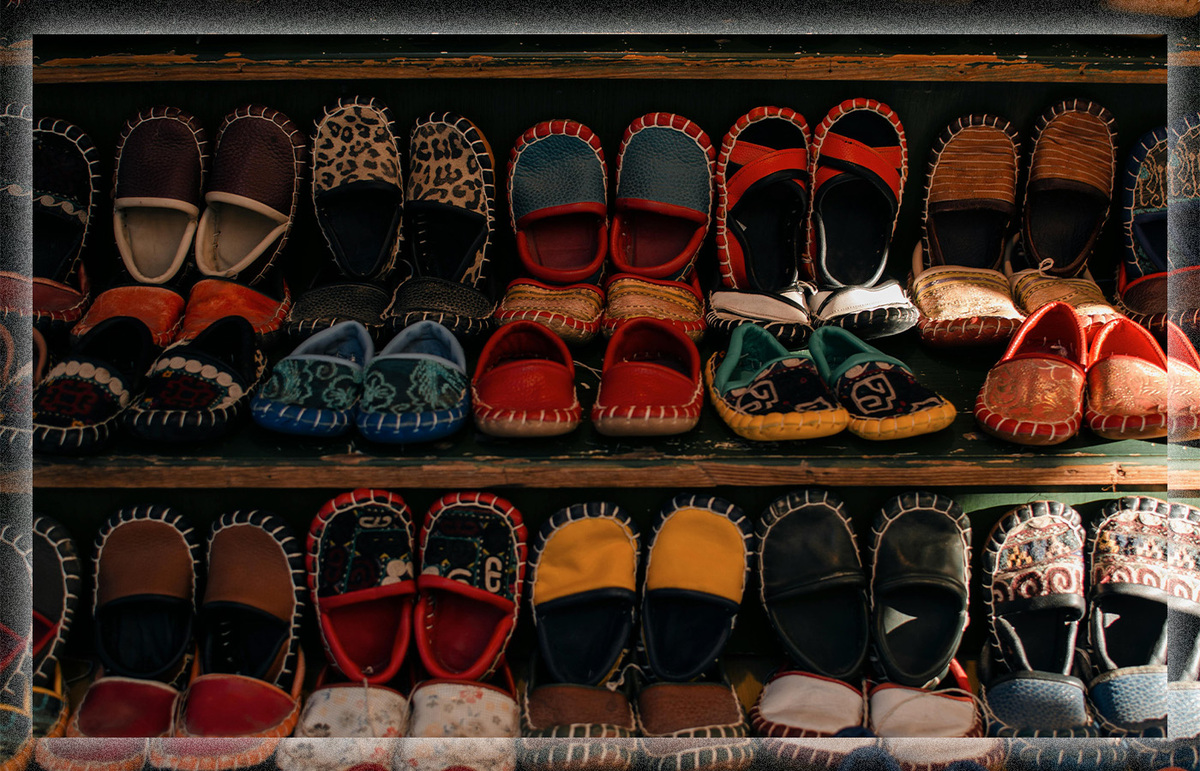
With growing concerns over sustainability and a desire for unique craftsmanship, the demand for handmade shoes has surged in recent years. You'll find that people are increasingly valuing the personal touch and meticulous attention to detail that mass-produced shoes often lack. Handmade shoes are more than just a fashion statement; they represent a commitment to quality and individuality.
When you opt for handmade shoes, you're choosing footwear crafted by skilled artisans who prioritize precision. Each pair is a work of art, reflecting hours of dedicated labor and a deep understanding of shoemaking techniques. This means you're not just buying shoes; you're investing in a product designed to last and provide comfort.
This level of customization simply isn't possible with factory-made options.
Additionally, the customization options are nearly endless. You can have shoes tailored to your exact measurements and even personalize the design, ensuring a perfect fit and look that's uniquely yours.
Moreover, handmade shoes often come with the added benefit of repair services, extending their lifespan and reducing waste. By choosing handmade, you're making a conscious decision to support artisans and contribute to a more sustainable future.
Ethical Material Sourcing
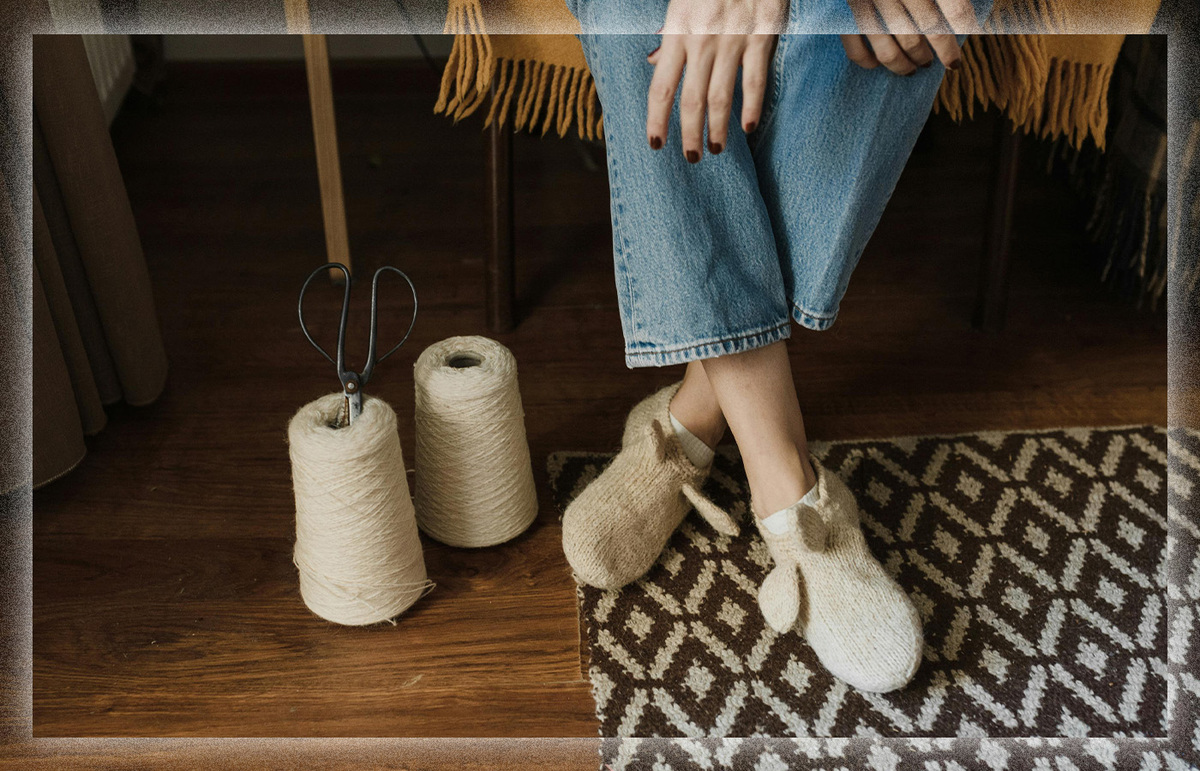
Selecting ethically acquired materials for handmade shoes guarantees that your footwear supports both environmental sustainability and fair labor practices. When you choose shoes made from responsibly acquired leather, organic cotton, or recycled materials, you're making a positive impact on the planet. These materials often come from suppliers who prioritize reducing waste, minimizing chemical use, and conserving water.
But it's not just about the environment. Ethically acquired materials also ensure that workers are treated fairly. Many large-scale manufacturing processes exploit labor, but when you opt for shoes made from materials acquired ethically, you know that the people behind the production are receiving fair wages and working in safe conditions. This transparency and accountability in the supply chain promote human rights and social justice.
Moreover, ethical material sourcing often supports local economies by partnering with smaller, community-based suppliers. This collaboration helps maintain traditional crafts and provides livelihoods in regions that might otherwise struggle economically.
Artisanal Craftsmanship
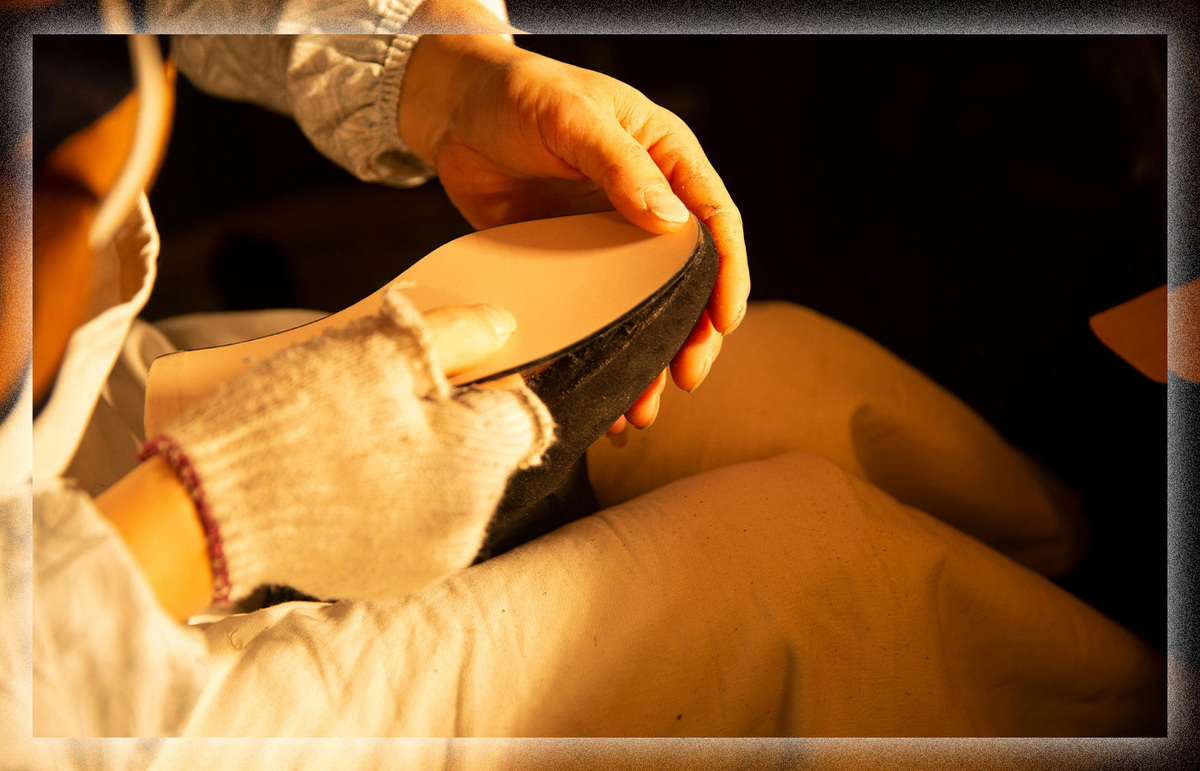
Artisanal craftsmanship transforms handmade shoes into unique works of art, each pair reflecting the skill and dedication of the shoemaker. When you choose handmade shoes Dubai, you're not just buying footwear; you're investing in a tradition that values quality and individuality.
The process of creating these shoes involves meticulous attention to detail and a deep understanding of materials, techniques, and design. Shoemakers dedicate countless hours to perfecting their craft, guaranteeing that each stitch, cut, and finish is executed with precision.
They often use traditional methods passed down through generations, blending them with modern innovations to create shoes that are both timeless and contemporary. This dedication to craftsmanship ensures that every pair of shoes isn't only aesthetically pleasing but also durable and comfortable.
Environmental Impact Reduction
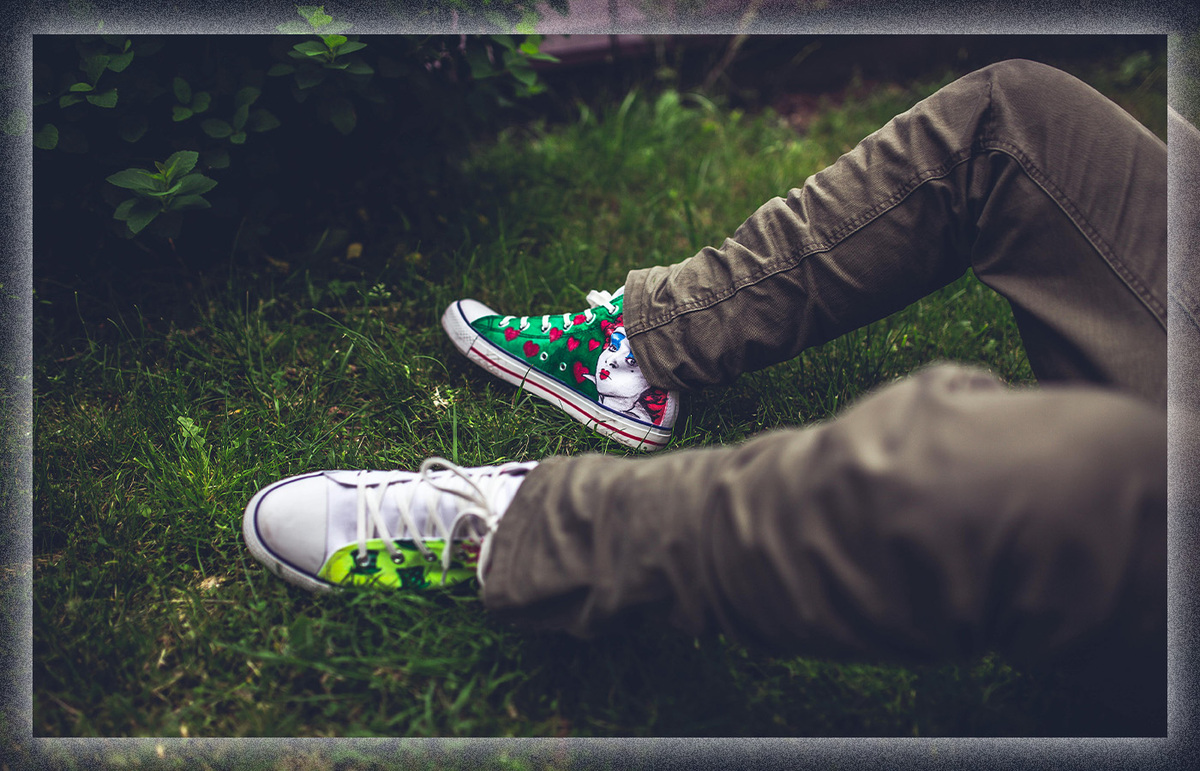
Choosing handmade shoes doesn't just celebrate craftsmanship; it also greatly reduces environmental impact. When you opt for handmade footwear, you're making a conscious decision to support sustainable practices. Unlike mass-produced shoes, handmade versions often use fewer resources and generate less waste. Artisans typically select high-quality, durable materials that ensure a longer lifespan, which means fewer shoes end up in landfills.
Moreover, handmade shoe production usually avoids harmful chemicals and synthetic materials prevalent in factory-made shoes. This means less toxic runoff contaminating our water supply and a reduction in the emission of pollutants harmful to both the environment and your health. Artisans often source materials locally, decreasing the need for long-distance transportation and the associated carbon emissions.
The production process itself is more energy-efficient. Handcrafting shoes eliminates the need for large-scale machinery and the significant energy consumption that comes with it. By selecting handmade shoes, you're supporting a more sustainable and eco-friendly manufacturing process.
Your choices can drive demand for greener practices in the fashion industry, encouraging more sustainable consumption and production patterns. Embrace handmade shoes and take a step toward a cleaner, greener planet.
Carbon Footprint Benefits
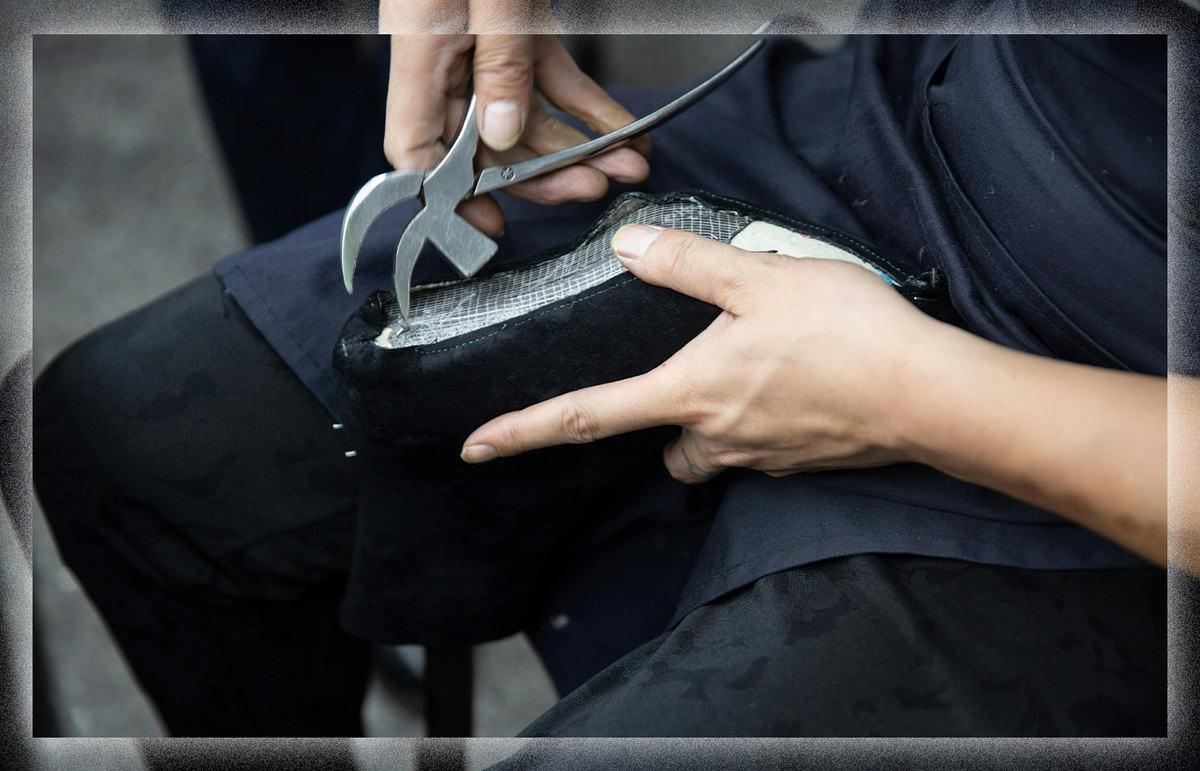
By opting for handmade shoes, you're reducing your carbon footprint. Mass-produced footwear often involves extensive machinery, long supply chains, and significant energy consumption, all contributing to higher carbon emissions.
Handmade shoes, on the other hand, rely less on industrial processes and more on skilled craftsmanship, which means fewer emissions during production.
When you choose handmade, you're also supporting methods that typically use less electricity and fewer synthetic materials. Mass production often relies on petroleum-based products and energy-intensive manufacturing techniques.
Handmade shoes, crafted with natural materials like leather, cotton, and jute, require less processing and hence emit fewer greenhouse gasses.
Moreover, handmade shoes are often made to last. Their durability means you'll be replacing them less frequently, which cuts down on the energy and resources required to produce new pairs.
This longevity translates to a smaller overall carbon footprint over time.
Local Production Advantages
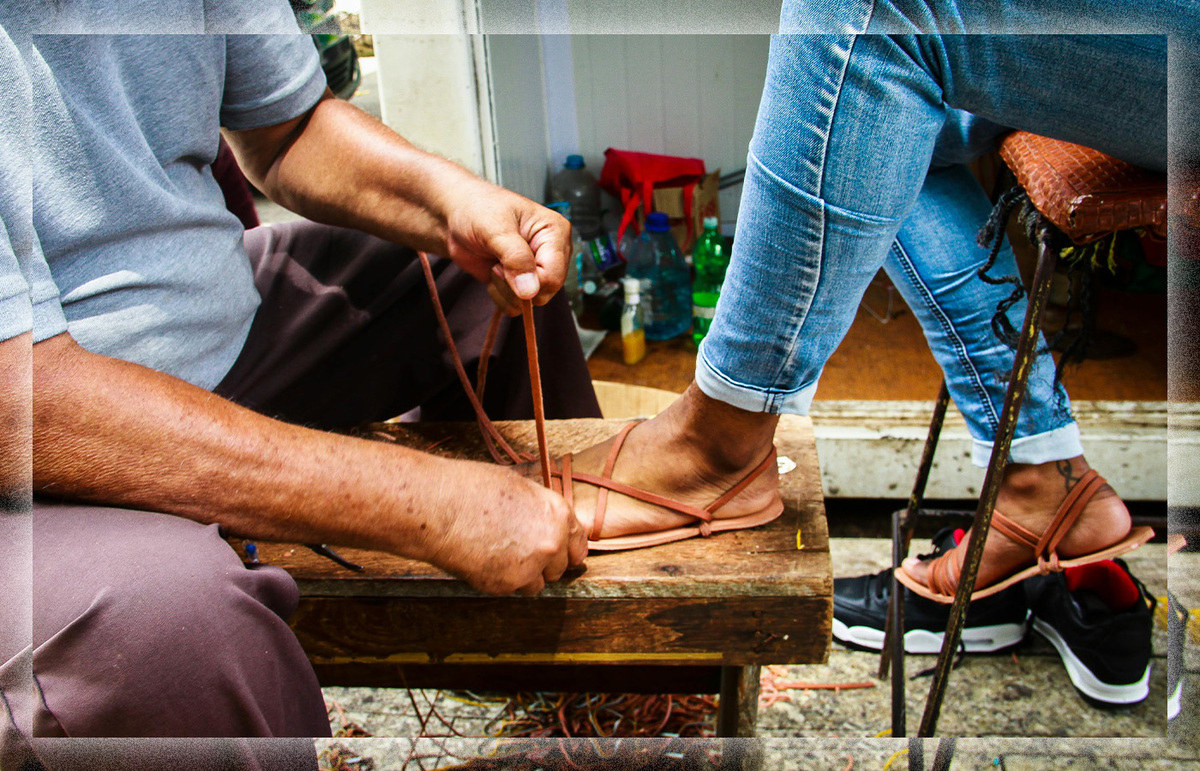
Supporting handmade shoes also means you're championing local production, which brings a host of benefits to both the environment and the community. By choosing locally produced footwear, you're reducing the need for long-distance transportation, cutting down on greenhouse gas emissions, and lowering your carbon footprint.
This choice directly supports small businesses and artisans in your area, fostering economic growth and stability within your community.
Local production often means higher standards for working conditions and fair wages, ensuring that the craftsmen and women creating your shoes are treated with respect and dignity. You're not just buying a product; you're investing in the well-being of skilled workers who take pride in their craft.
This can lead to a more transparent supply chain, where you can trace the origins of your shoes and feel confident about their ethical production.
Additionally, local production supports traditional craftsmanship and preserves unique cultural heritage. Artisans often use time-honored techniques and locally sourced materials, contributing to the sustainability and distinctiveness of each pair of shoes.
Longevity and Durability
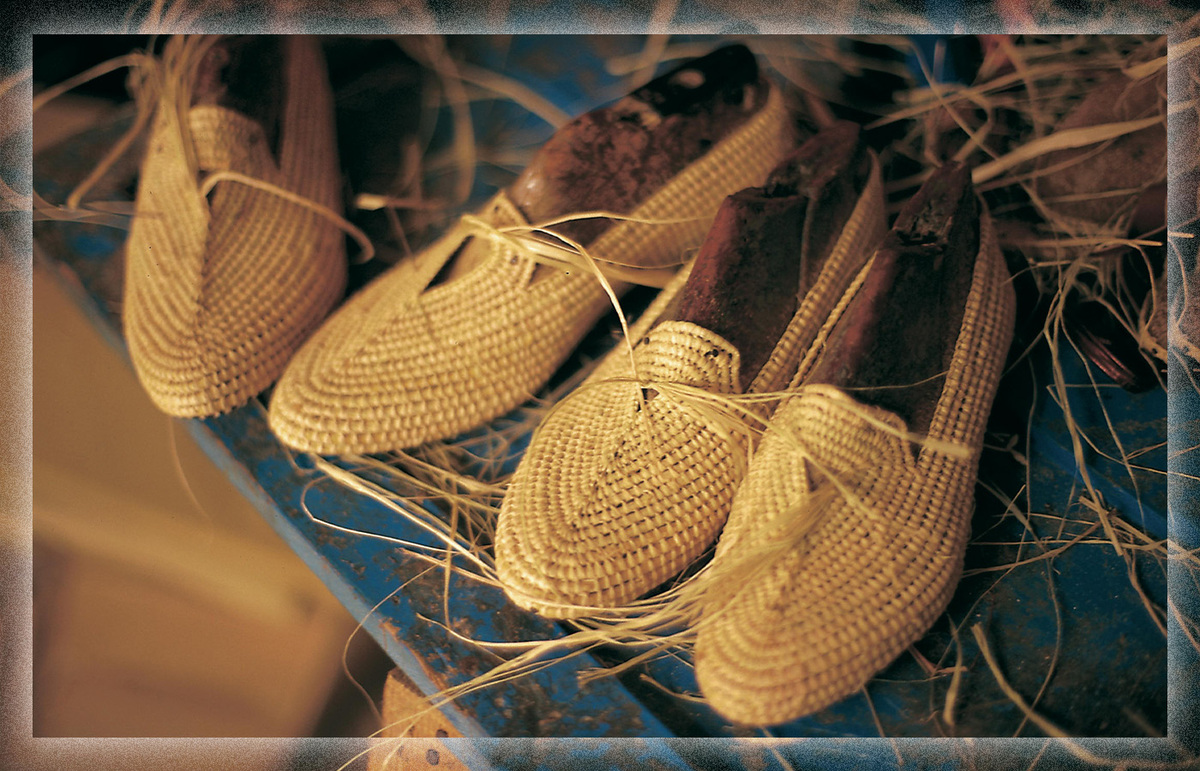
Handcrafted shoes are well-known for their exceptional longevity and durability, often surpassing their mass-produced counterparts by years. When you invest in a pair of handcrafted shoes, you're not just purchasing footwear; you're securing a long-term relationship with quality. Crafted by skilled artisans, these shoes are constructed to withstand the test of time and everyday wear. The meticulous attention to detail and use of high-quality materials guarantee they maintain their structure and comfort even after extensive use.
Unlike mass-produced shoes, which often prioritize quantity over quality, handcrafted shoes are meticulously made with durability in mind. Artisans pay close attention to stitching, reinforcing high-stress areas, and selecting materials that won't degrade quickly. This results in fewer replacements, less waste, and a smaller environmental footprint over time.
Furthermore, handcrafted shoes can often be repaired rather than discarded. Skilled craftsmen can replace soles, re-stitch seams, and refurbish the leather, extending the lifespan of your shoes even further. This not only saves you money in the long run but also promotes a sustainable lifestyle.
Investing in handcrafted shoes is a conscious choice for both your wardrobe and the planet.
Unique and Custom Designs
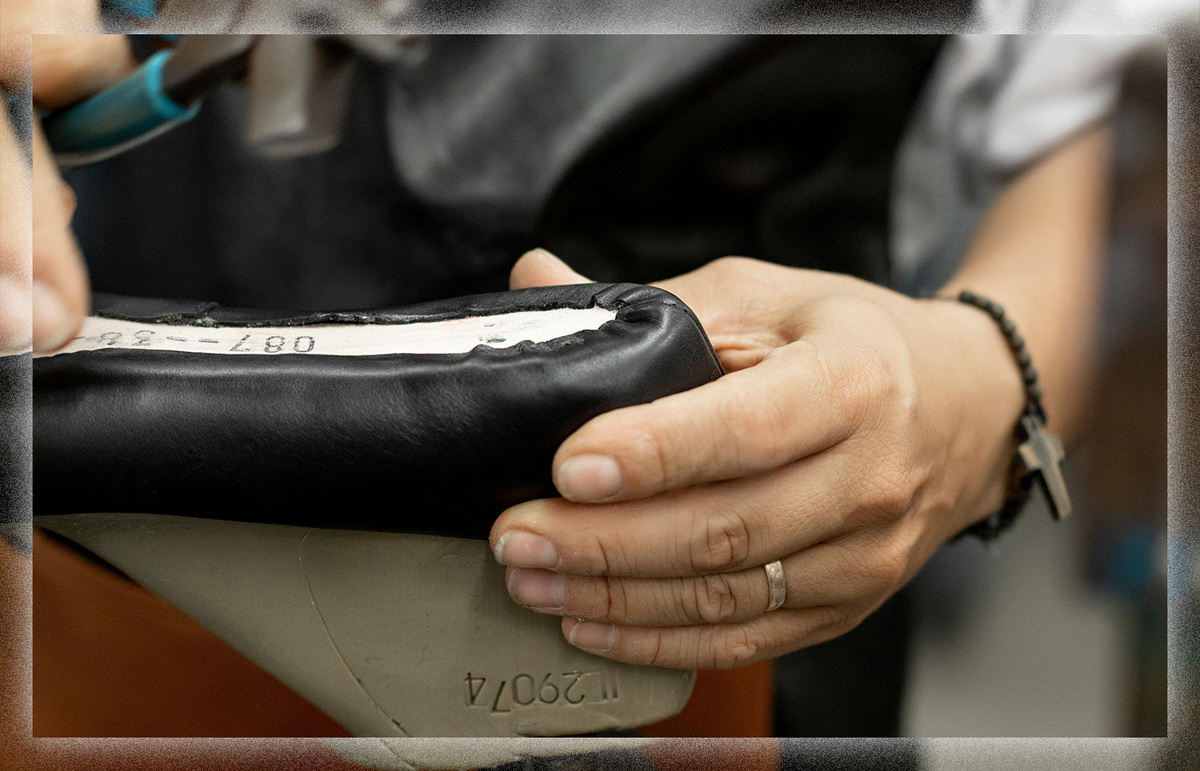
When you opt for handcrafted shoes, you're embracing the chance to own a one-of-a-kind and personalized design tailored to your individual style. Unlike mass-produced footwear, handmade shoes offer an unmatched level of uniqueness. Artisans craft each pair with meticulous attention to detail, guaranteeing your shoes mirror your tastes and preferences. You can choose everything from the type of leather or fabric to the color, stitching, and even the type of sole.
This degree of customization means you're not just wearing shoes—you're making a statement. Each pair becomes a canvas displaying your personality and fashion sense. No two pairs are exactly the same, making your footwear as distinct as you are. This contrasts sharply with the uniformity seen in factory-made shoes, where thousands of identical pairs roll off assembly lines.
Furthermore, handcrafted shoes often integrate traditional techniques and premium materials that enhance their aesthetic appeal and comfort. You get to enjoy footwear that's not only fashionable but also more comfortable and durable. The artisans' commitment to quality and design ensures you'll walk confidently, knowing your shoes are an expression of who you are.
Embracing handcrafted shoes means opting for originality and bespoke elegance every step of the way.
Supporting Local Artisans
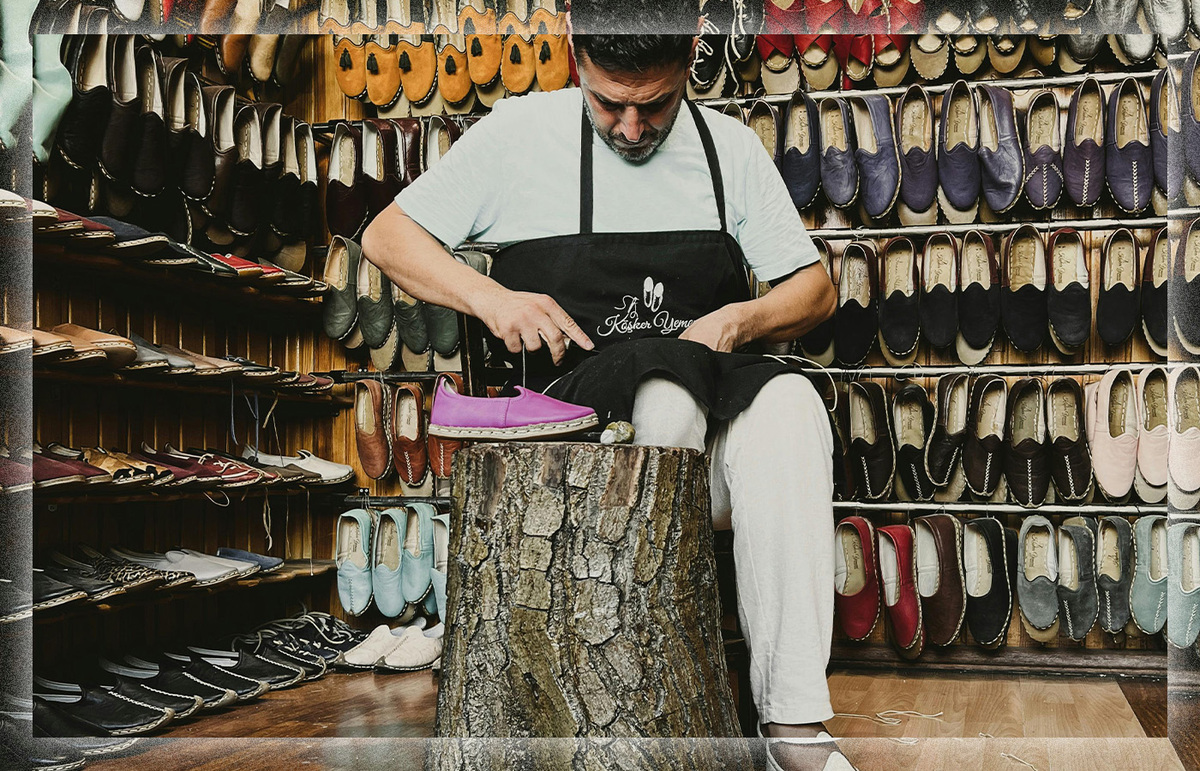
By choosing handcrafted shoes, you're directly contributing to the livelihoods of skilled local artisans who pour their heart and soul into every pair. These artisans often rely on traditional methods passed down through generations, ensuring that each shoe is unique and of the highest quality. When you buy their products, you're not just getting a pair of shoes; you're investing in their craft and heritage.
Supporting local artisans helps sustain communities by keeping money within the local economy. It fosters a sense of community and encourages the growth of small businesses. By opting for handmade shoes, you're helping to preserve traditional skills that might otherwise be lost in a world dominated by mass production.
Additionally, the environmental impact of handmade shoes is considerably lower than that of factory-made alternatives. Artisans often source materials locally and use eco-friendly practices, reducing the carbon footprint. Your choice promotes sustainability and encourages responsible consumption.
In essence, your purchase has a ripple effect that goes beyond simple footwear. It supports the artisans' livelihoods, preserves cultural heritage, and promotes sustainability. So, the next time you need a new pair of shoes, consider the profound impact of choosing handmade.
Cost Vs. Value Analysis
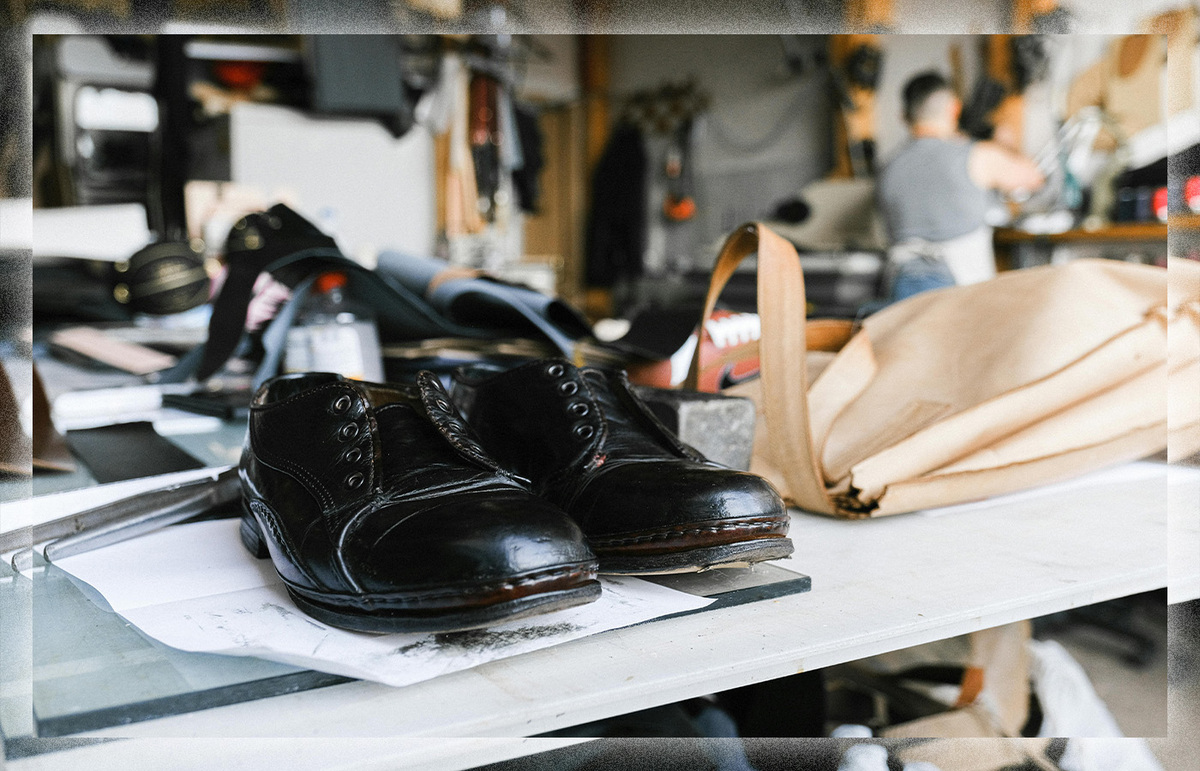
Comparing the cost of handmade shoes to mass-produced ones reveals the true value of investing in quality craftsmanship. While it's accurate handmade shoes often come with a higher price tag, the benefits they offer far outweigh the initial expense. You're not just purchasing footwear; you're investing in durability, comfort, and a unique design tailored to your needs.
Handmade shoes are typically crafted from high-quality materials, ensuring they last much longer than their mass-produced counterparts. This means fewer replacements over time, ultimately saving you money. Additionally, the meticulous construction process means improved comfort and support, which can positively impact your overall foot health.
From an economic perspective, handmade shoes represent a more sustainable choice. Mass-produced shoes often come from factories with questionable labor practices and significant environmental footprints. By choosing handmade, you're supporting ethical labor and reducing your carbon footprint.
Furthermore, handmade shoes offer unparalleled customization. You can get a perfect fit, something mass-produced shoes rarely guarantee. This not only enhances comfort but also minimizes wear and tear, extending the shoe's life. Therefore, while the initial cost might be higher, the long-term value and benefits of handmade shoes make them a prudent investment.
Making the Switch
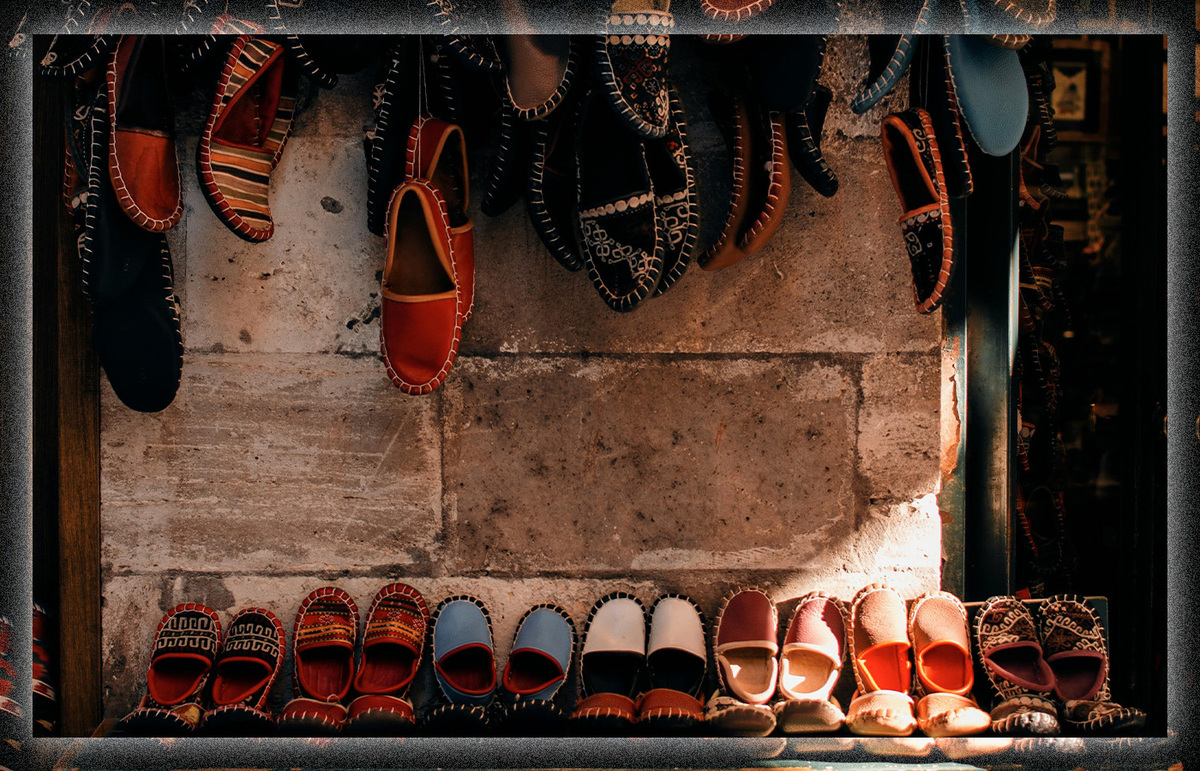
Shifting to handmade shoes might seem daunting at first, but the change is well worth the effort for the unparalleled benefits they offer. You'll discover that handmade shoes provide unmatched comfort, superior quality, and a unique style that mass-produced footwear simply can't match.
Every pair is crafted with meticulous attention to detail, ensuring a perfect fit and exceptional durability.
To make the shift, start by researching reputable artisans or brands known for their commitment to sustainability and craftsmanship. Read reviews, ask questions, and don't hesitate to reach out directly to the makers. They can provide insights into the materials used, the production process, and care instructions.
Next, consider starting with a versatile pair that can be worn on various occasions. This initial investment will help you appreciate the difference in quality and comfort, making it easier to expand your collection gradually.
Remember, handmade shoes aren't just a purchase but an investment in long-lasting, beautifully crafted footwear.
Lastly, embrace the learning curve. Understanding how to properly care for your handmade shoes will extend their life and maintain their elegance.
Once you experience the benefits, you'll find the shift rewarding and enriching.
Conclusion
By slipping into handmade shoes, you're not just making a fashion statement; you're walking a path of sustainability. Each step symbolizes a commitment to ethical choices, a nod to the artisans' legacy, and a stride towards a greener planet.
Embrace these eco-friendly gems, and you'll find that the journey is as rewarding as the destination. Choose handmade shoes—where every footprint leaves a positive mark on the earth and supports the hands that craft them.











